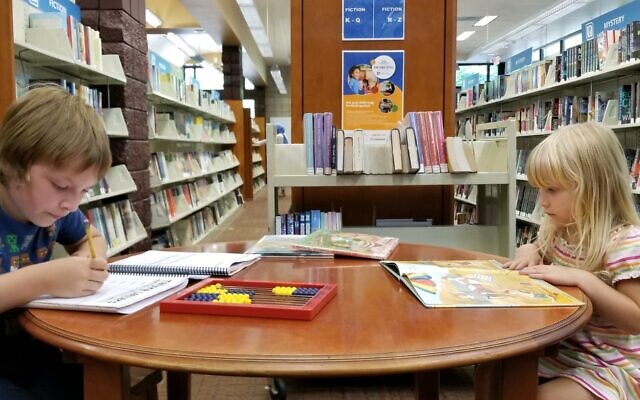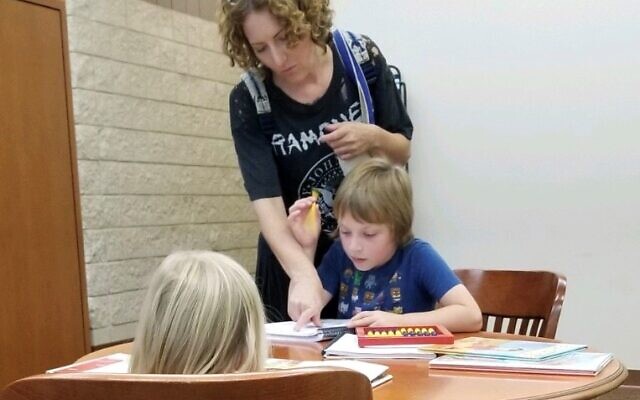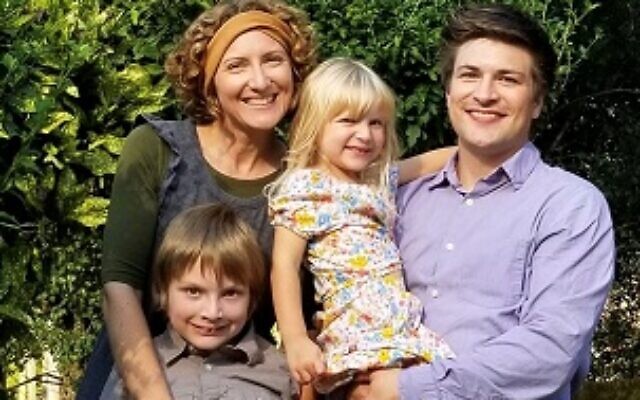Local Family Touts Home Schooling
Ana and Clark Reed-Kissick discuss the hot topics of home-schooling including teaching gender issues, lack of structure and socialization.
After 37 years with the Atlanta Journal-Constitution and now with the AJT, , Jaffe’s focus is lifestyle, art, dining, fashion, and community events with emphasis on Jewish movers and shakers.
COVID-19 may have raised awareness to the potential spread of germs among students, but home schooling has long been around. Advantages and disadvantages persist.
Will kids be ready for the real world? How will they score on standardized testing? Will the at-home parents experience loss of income? Will there be more academic freedom?
Harvard University’s college admissions policy is to treat homeschoolers the same as traditional applicants. Ana Reed–Kissick and her husband, Clark, an electrical engineer, are one such couple who made this decision for their young family.
Ana, who studied sociology, massage therapy and body work, attended public school in DeKalb and Gwinnett counties.
Regarding the challenge of home schooling, Ana said, “We feel, with our respective backgrounds, that we’re well-equipped and well-rounded for teaching. Clark contributes STEM projects; however, I am the primary teacher on Monday through Friday. My driving motivation to home school in the beginning was a desire to encourage the children’s own interests. There are many philosophies; and the beauty is that the parent can pick which is beneficial to their family.”

Socialization is a hot topic in the home school community. Decades ago, it was more challenging but has now been made easier with the advent of the internet. Most home schools operate out of a co-op which meets weekly or bi-weekly, and are informative, enriching and packed with field trips.
Ana said, “Parental involvement is key. Enrichment activities could be anything from world religions to an herbal identification walk at a state park, economics for children, or guitar club. What sets these apart from public school is 100 percent parent involvement. This is how we account for socialization.”
Between co-ops, friend playdates occur organically. Ana continued, “Much time in traditional school is spent being told to listen and be quiet. Our kids interact and learn in ways that cultivate friendships as a goal versus traditional school where friendships can be a result.”
The couple’s son attends an in-person Jewish education program.
Ana shared, “Many are now opting for Jewish studies completely online. I hear great things about Nigri Jewish Online School or Melamed Academy.”

Ana’s curriculum is comprised of books, worksheets, literature, teaching manuals and student guides with a plethora of hands-on projects. The typical school day starts after breakfast with the ability to run outside for 10 minutes with restarts. Finishing instruction around 1 p.m., with all assignments for the day having been completed, satisfies the state requirements. A typical day includes math, science, reading, language arts, social sciences, history and electives. Periodic curriculum-based tests measure the students’ learning milestones.
Ana eschews the perceived disadvantages of home schooling. “Advantages are endless. Your school day can start anytime. As long as you meet the daily requirements, you can start school at noon if your teen is a late sleeper. Have a chance to travel abroad? Pack the books, do school while on a trip. Need to care for a relative? The kids come for a learning opportunity.”
While others may question blurred lines between the roles of parent and teacher, Ana disputes that suggestion.
“We have never had a problem with them learning from us. They have been taught to love learning, so if we are learning together, this is a loved, shared experience met with positivity. I’ve heard complaints about kids not wanting to listen to instruction from parents, from people who didn’t home school from the beginning like us. My advice would be to keep at it, and they will adjust. All parents experience burnout. Self-care is vital.”
Another hot topic in public schools is the debate over gender studies. Ana said, “I know this is a touchy topic. While our family loves and supports the choice of any gender or sexuality, it’s not something we want taught to our children at school. We believe families and children shouldn’t be marginalized because of race, ethnicity, gender, sexuality, religion, socio-economic status or disability.
“Our oral traditions back up the existence and ‘seen-ness’ of multiple different genders. We believe it’s being addressed too early in the name of politics and not the child’s best interests. I’m very moderate on this issue. I believe in inclusivity, but gender/orientation is trendy in mass culture which influences mass social behavior.”
Ana concluded, “Ultimately, we hope to instill positive values and a love for learning to bring them happiness in life. A favorite quote is from Dr. Chaim Ginott, ‘Children are like wet cement, whatever falls on them makes an impression.’ Our intentions are to impress wisely.”




comments